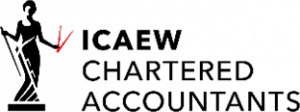Helping clients claim self-employed income support scheme (SEISS)
How can accountants help clients claim for SEISS?
We have all witnessed the major disruption the pandemic caused to the economy and communities. One in 10 of the six million UK SMEs expect the pandemic to cost them over £50,000 in total, with an average of £15,673 being lost per SME.
Some industries have been hit particularly hard. Hair and beauty professionals expect costs to reach £12,800 on average, tradespeople think it will cost them £18,039 overall – and pub and restaurant owners expect significant total costs of £45,470 on average.
To assist struggling businesses that have been financially affected by the Coronavirus pandemic, the UK government brought in a number of schemes to support businesses – most of which have been extended throughout the pandemic.
Millions of people were able to keep their jobs due to the job retention scheme (furlough). Limited companies could apply for coronavirus BounceBack loans and a huge number of self-employed people were given the opportunity to apply for grants through the Self-Employed Income Support Scheme (SEISS).
However, last month, HMRC issued a warning stating that many that were supposed to claim, did not.
Some 3.4m self-employed individuals were identified as potentially eligible for the fourth SEISS grant – which closed for applications on 1 June – but only 2m (58%) of that figure did so.
Who should be claiming for SEISS?
If you are self-employed and submitted a 2019-20 tax return by midnight on 2 March and is not an owner of a limited company, they are eligible. This means people who were newly self-employed can now apply for the grants.
The furlough scheme, which closes on 30 September, gives employees 80 per cent of wages up to a cap of £2,500 per month, with the government contributing 60% while the employer has to top up 20% per month.
The SEISS works in a similar way, but is instead based on self-employed profits. HMRC contacts the individuals it believes are eligible for the SEISS. The current 5th round of grants covers the period from May to September 2021. The amount clients will receive depends on how much their turnover has decreased in the year April 2020 to April 2021.
If turnover has reduced 30% or more, the grant will be worth 80% of three months’ average trading profits, capped at £7,500.
If the turnover has been reduced by less than 30%, the grant will be worth 30% of three months’ average trading profits, capped at £2,850.
You will need to take in trading profits of no more than £50,000 and it should also be at least equal to non-trading income (income outside of self-employment) to be eligible for the taxable grant.
All SEISS amounts received will be subject to income tax and National Insurance contributions. Clients will still owe income tax and National Insurance on any money received via the SEISS, but as it is a grant rather than a loan, the total amount of income won’t need to be paid back.
Tax implications to look out for
SEISS grants were paid as a percentage of previous years’ average monthly income, as calculated from previous tax returns, and were released in batches throughout the past year.
For sole traders, it will be necessary to add the SEISS payments received in 2020/21 to the trading profits or losses that form the basis of the year to 5 April 2021.
For example, if you are a sole trader that pulls up their accounts to the year to 30 June 2020 making a trading profit of £10,000 for that year and receives payments totalling £13,070 in June and August 2020, your client will be taxed on a total of £23,070 in the 2020/21 tax year.
If you made a loss, the SEISS grant will be netted against the loss and is therefore subject to the usual trade loss relief rules.
These grants were a lifeline for many self-employed people, but they were paid gross. That means that self-employed taxpayers are expected to show the grant money received on their 2020/21 tax returns and pay tax on the money they have received.
Following the Spring Budget announcement, these Covid grants have been extended, with a 4th and 5th grant announced, stretching to September 2021, which means 2021/22 tax returns could also include Covid grant income.
HMRC will be altering the self-assessment tax return, adding a section to include the amount claimed through the SEISS in the relevant tax year.
You will simply need to make sure clients record the income made available due to the grants and include the grant money in their annual income calculations.
Unfortunately, since the SEISS grants will require a new entry field, those who have claimed SEISS grants will not be eligible to sign up for Making Tax Digital (MTD) early, as many other self-employed people already have. However, by the time MTD becomes mandatory in 2023, Covid will (hopefully) be a distant memory.
It is our responsibility to confirm that the amount claimed is correctly stated and that the amount of tax calculated on that claim is correct.

